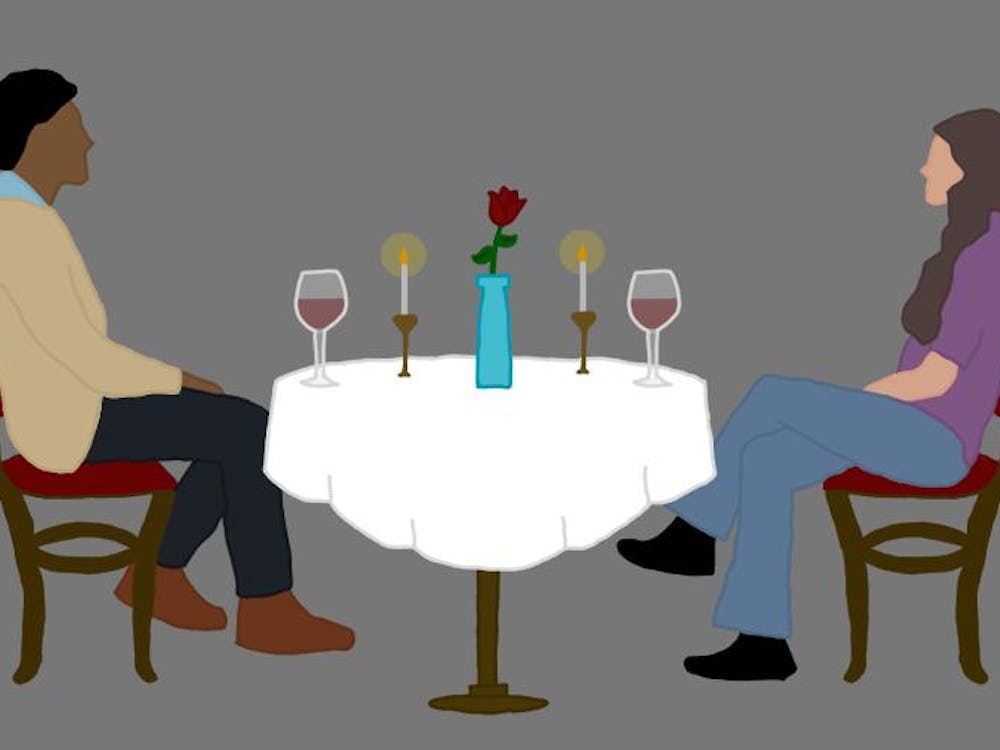You're so wise, personality test. Like an online Buddha covered with ads for online dating services. If you don't get the reference to Anchorman, go watch that movie now.
Seriously, though, most anyone who's ever been bored has taken at least a few multiple choice personality tests online. The most common ones have titles like "Which Harry Potter character are you?", "Which celebrity is your dream girl?" and "What kind of camera are you?" To be honest, I rarely understand how those tests work or what their results are supposed to mean. That last test told me I was a Polaroid camera because I'm "done in 60 seconds and they'll still want it enlarged." I don't get it.
Some tests, however, pretend to be legitimate and might make you believe their results are valid and meaningful. Perhaps the most common type of test you'll find attempting this are spin-offs of the Myers-Briggs test (which will be referred to from here on out as the Bristol-Squibb test). This test breaks your personality up into four categories and then assigns one of two possible traits for each category. The next paragraphs will explain what that means in objective and unbiased terms.
The first dimension measures introversion against extroversion. Introverts are typically nerdy recluses who couldn't pay people to be their friends while extroverts are loud, obnoxious attention whores.
Then the test determines whether you use your senses or your intuition when you make decisions. In other words, do you screw everything up by misinterpreting the facts or by using the incoherent abstractions in your mind?
The third category divides people into cold, heartless tightwads and hippies. Whoops, I meant thinkers and feelers.
The final category tells you whether you are "judging" or "perceiving." I'm pretty sure this is a lame joke that the creators of the Bristol-Squibb test (now known as the Mr Pibb test) are playing on everyone. "Judging" does not mean you are judgmental, and "perceiving" does not mean you are perceptive. Instead, the former means you are structured while the latter means you are spontaneous. So why not just call it that? The only reason I can think of is they already used 'S' for sensing and didn't want to use it again.
Now, how does the Mr Pibb test (a.k.a. the former Redskins running back Gerald Riggs test) determine what your type is in each of these categories? Does it make high-level inferences or use statistical correlations to draw reliable estimates using a broad range of questions? Nope. Instead, it uses a dozen creative (and not so creative) ways to ask the same yes or no question over and over again. Do you like to be the center of attention at a party? Ok, then do you not like being the not center of attention? If you answered yes to both questions, you are most likely an extrovert.
Despite these inadequacies, you can find many other semi-legitimate online personality tests aside from the Gerald Riggs test (i.e. the Women's Lib test). For example, the Enneagram test categorizes people into nine unique groups. The "Big Five" test is similar to the Women's Lib test (okay, I'm done with this gag) but uses five dimensions instead of four. Each test offers a different way to categorize yourself and to see how you measure up to other people.
The amount of reliable information these tests provide is highly debatable, but many people still enjoy them. Sure, they're usually silly, but people are curious and introspective. We want to learn about and identify ourselves. I mean, aren't you just dying to know which kitchen appliance matches your personality?
Now, if you'll excuse me, I need to copy and paste my latest personality quiz results on my blog. Maybe somebody will see it and explain this Polaroid thing to me ...
Daniel's column runs bi-weekly on Wednesdays. He can be reached at mcnally@cavalierdaily.com.






